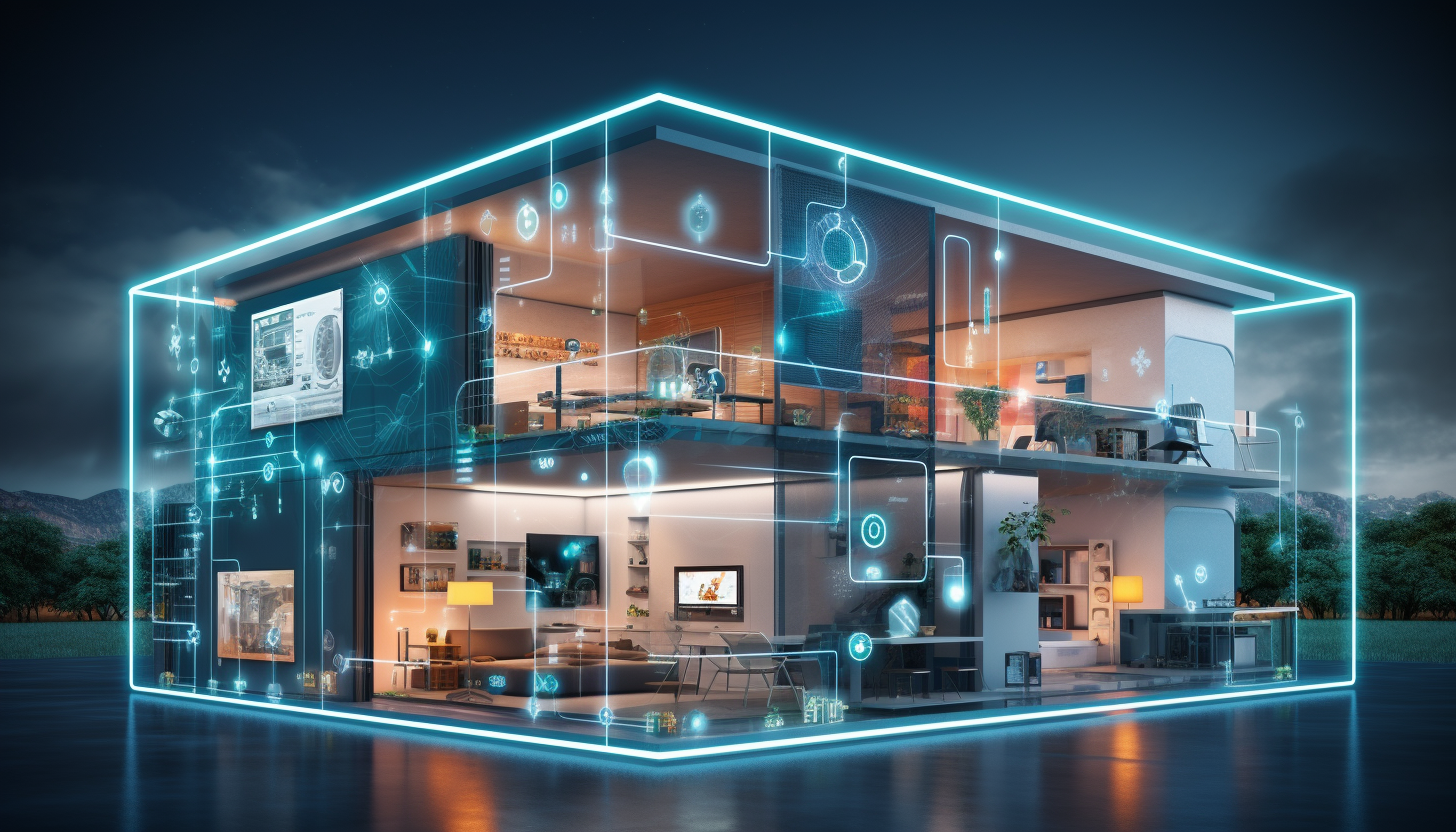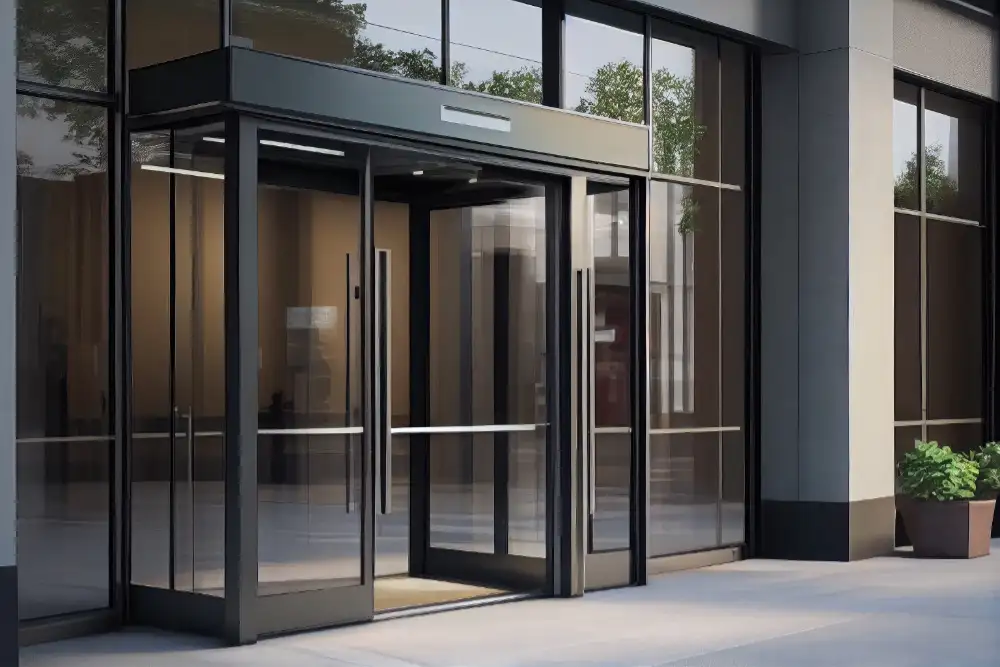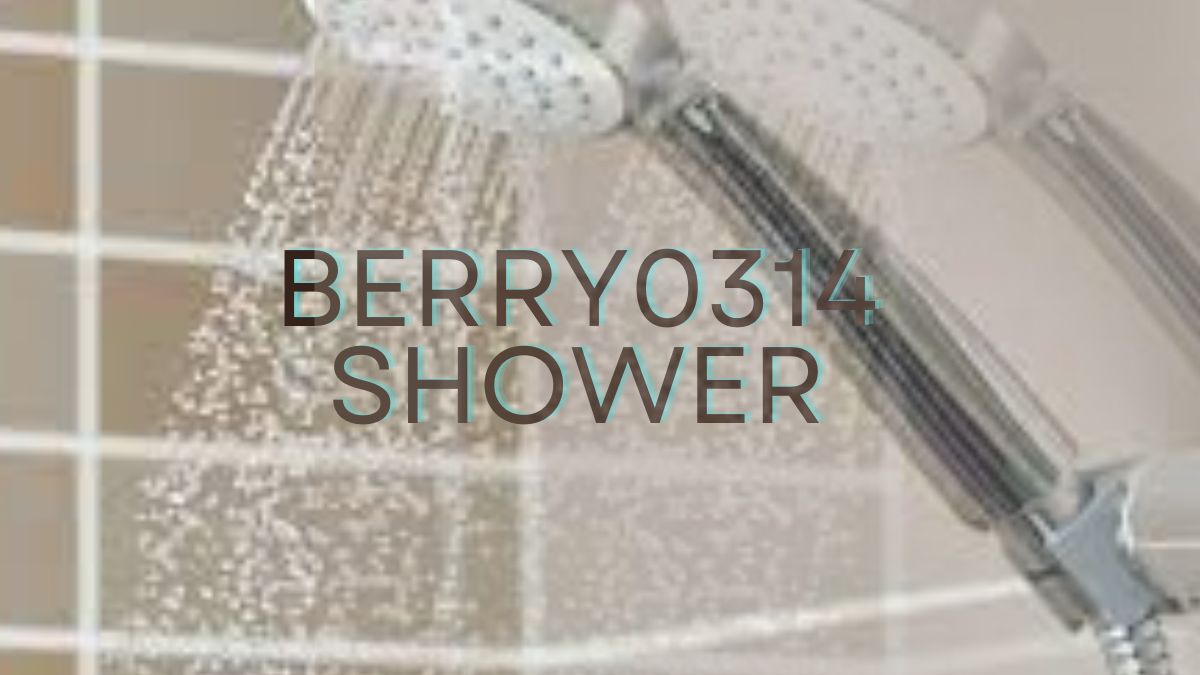Home improvement
The Future of Home Wiring: Trends and Technologies Shaping Modern Electrical Installations

As technology advances at an unprecedented pace, the infrastructure within our homes must evolve to accommodate these changes. This is particularly true in-home wiring, where traditional methods are being superseded by contemporary innovations designed to enhance functionality, safety, and efficiency. The changes in home wiring are setting the stage for enriched modern living, offering more than just power—they offer smart integration, sustainability, and unrivaled safety.
This comprehensive article will explore the fascinating trends and technologies shaping home wiring. From intelligent technology integration to environmentally sustainable solutions, these advancements are not merely overdue upgrades but are essential investments that promise long-term benefits for every homeowner. Understanding these changes can help you decide whether to pursue a renovation or a new construction project.
Table of Contents
- Introduction to Modern Home Wiring
- Smart Home Integration
- Energy Efficiency and Sustainability
- The Role of Wireless Technology
- Safety Innovations in Wiring
- Eco-Friendly Wiring Materials
- Future Outlook and Trends
- Conclusion: Embracing Technological Advancements
Introduction to Modern Home Wiring
In recent decades, home wiring has experienced transformative changes tailored to bolster home safety, efficiency, and convenience. This evolution is not merely a result of technological advancements but also an answer to the growing need for electrical systems supporting various household electronic devices. In this transformative era, planning a new home electrical wiring Philadelphia PA, or any locale, necessitates staying abreast of these developments to future-proof your dwelling. Modern wiring systems are designed to fulfill contemporary needs and adapt to future advancements, offering a flexible framework that grows with technological innovations.
Smart Home Integration
Smart homes leverage a synergy of technologies to automate and enhance daily activities, providing unparalleled comfort and efficiency. By utilizing intricate wiring systems that connect devices seamlessly, homeowners can control essential functions such as lighting, climate, security, and appliances, all from a single interface. This integration level relies on robust and sophisticated wiring infrastructures, ensuring devices communicate rapidly and reliably. As more households embrace intelligent technologies, the demand for wiring that supports advanced electronic loads and data traffic continues to rise.
Energy Efficiency and Sustainability
The global shift towards green living has prioritized energy-efficient solutions within residential spaces. Contemporary wiring systems are engineered to minimize energy loss, thus enhancing a home’s overall sustainability. These advancements are part of a broader strategy to combat climate change by reducing household carbon footprints. Homeowners support environmental conservation efforts and benefit from reduced utility costs by incorporating energy-saving techniques, such as smart grids and energy-efficient appliances. This dual advantage makes it imperative to consider energy efficiency when planning home wiring projects.
The Role of Wireless Technology
Wireless technology is redefining the parameters of electrical communication within homes. By reducing reliance on physical wiring, wireless solutions offer aesthetically pleasing environments uninhibited by cables and promote flexible device placement. In smart homes, where many devices must interact without delays, wireless technologies provide low-latency solutions that improve the overall user experience. Wireless technology opens new possibilities for easier upgrades and installations, making it an attractive component of future-proofed homes.
Safety Innovations in Wiring
Incorporating safety innovations in electrical installations is crucial for protecting properties from electrical hazards. Developments like ground fault circuit interrupters (GFCIs) and arc fault circuit interrupters (AFCIs) significantly reduce the risk of short circuits and potential fires. These devices are engineered to detect and interrupt dangerous electrical conditions instantly. Additionally, enhancements in insulating materials and installation techniques further shield homes from environmental threats, promising a secure electrical infrastructure that withstands daily wear and tear.
Eco-Friendly Wiring Materials
In pursuit of sustainable living, there is growing interest in using eco-friendly materials for home wiring. Environmentally conscious alternatives such as recycled metals for conductors and less harmful insulation materials are increasingly available, offering performance on par with traditional options. These sustainable materials help reduce the environmental impact of construction and renovation projects, fostering an eco-friendly building culture. Consider exploring sustainable building materials and their applications in modern homes for additional information.
Future Outlook and Trends
The future of home wiring appears promising, driven by continuous innovations that enhance efficiency and expand capabilities. Technologies such as artificial intelligence and nano-materials promise to take energy management and safety to new heights. These advancements pose opportunities for improved energy storage systems that support comprehensive smart home setups. The capability to anticipate and embrace these changes allows homeowners to invest in dynamic systems that grow with emerging technologies, ensuring a home remains efficient, safe, and adaptable.
Conclusion: Embracing Technological Advancements
Modern electrical wiring transcends the traditional role of supplying power, forming the cornerstone of today’s intelligent, efficient, and sustainable homes. By adopting these technological advances, homeowners can create spaces that cater to current needs and anticipate future demands. This proactive embrace of innovation represents an investment not just in safety and efficiency but in a home’s overall long-term value and functionality. Staying informed about these trends ensures that your house remains at the forefront of modern living as new developments emerge.
Home improvement
Fibord Handmade Stainless Steel Sink K30-1: A Stylish Sink

When it comes to selecting the perfect Fibord Handmade Stainless Steel Sink K30-1 for your kitchen or bathroom, style, functionality, and durability are key factors to consider. The Fibord Handmade Stainless Steel Sink K30-1 stands out as an excellent choice for homeowners who desire a blend of elegance and practicality. This sink, crafted with meticulous attention to detail, offers a unique design that can elevate the aesthetic of any modern kitchen.
Sleek and Stylish Design
One of the most striking features of the Fibord Handmade Stainless Steel Sink K30-1 is its sleek, contemporary design. Made from premium-quality stainless steel, the sink features a minimalist yet sophisticated look that complements a variety of kitchen styles, from rustic to ultra-modern. Its smooth, clean lines and brushed finish give it a luxurious appearance, making it a focal point in the space.
The K30-1 model is designed with both form and function in mind, offering a balance between aesthetic appeal and ease of use. The deep basin of the sink ensures that large pots and pans can be accommodated comfortably, while the sleek surface remains easy to maintain.
Premium Stainless Steel Construction
Durability is at the heart of the Fibord Handmade Stainless Steel Sink K30-1’s design. Made from high-grade stainless steel, this sink is resistant to scratches, stains, and corrosion. This makes it an ideal choice for busy kitchens where heavy usage is the norm. Stainless steel is also naturally resistant to bacteria and germs, making it a hygienic option for food preparation.
The K30-1 sink is designed to withstand the test of time. With proper care, it maintains its shine and integrity for years, making it a long-term investment for your home.
Noise Reduction Technology
A standout feature of the Fibord Handmade Stainless Steel Sink K30-1 is its noise-reduction technology. The sink is equipped with sound-deadening pads that reduce the noise caused by running water or dropping utensils into the basin. This is particularly beneficial in open-concept kitchens, where loud sounds can be disruptive to the flow of conversation or daily activities.
The noise reduction feature enhances the overall experience of using the sink, making it quieter and more pleasant for daily use.
Easy Installation and Versatility
The Fibord Handmade Stainless Steel Sink K30-1 is designed for easy installation. It comes with everything you need for a seamless setup, whether you’re replacing an old sink or installing a new one. The versatile design makes it compatible with both undermount and top-mount installation methods, giving homeowners flexibility in how they incorporate it into their kitchen or bathroom layout.
Whether you’re remodeling an existing space or building a new kitchen, this sink offers the perfect combination of function and aesthetic appeal.
Easy to Clean and Maintain
Stainless steel sinks are well-known for being easy to clean, and the Fibord Handmade Stainless Steel Sink K30-1 is no exception. Its smooth surface is resistant to dirt and grime, and it is simple to wipe down with a soft cloth and mild cleaning solutions. The brushed finish also helps to hide fingerprints and water spots, ensuring that your sink always looks its best with minimal maintenance.
Conclusion
The Fibord Handmade Stainless Steel Sink K30-1 is a perfect blend of style, durability, and practicality. Its sleek design, premium construction, and noise-reduction features make it an excellent choice for any modern kitchen or bathroom. Whether you’re renovating your home or building from scratch, this sink offers the perfect combination of elegance and functionality to meet the demands of everyday life. With its easy installation, low-maintenance upkeep, and long-lasting durability, the K30-1 is an investment that will add value to your home for years to come.
Home improvement
The Benefits and Applications of Modern Automated Door Systems

Table of Contents
- Introduction
- Key Benefits of Automated Door Systems
- Types of Automated Doors
- Essential Components of Automated Door Systems
- Widespread Applications
- Installation and Maintenance
- The Future of Automated Door Systems
Automated door systems offer convenience, accessibility, and energy efficiency. They are widely used in various settings, including businesses, hospitals, and homes. These systems improve safety by preventing injuries and enhance security by controlling access. Automated doors also contribute to energy conservation by reducing heating and cooling costs. Technological advancements have made automated doors more reliable, durable, and customizable to suit specific needs.
Introduction
Automated door systems have become a staple in modern buildings, blending convenience with advanced technology. These systems are cherished in various industries and settings, enhancing security, accessibility, and user experience. Whether you are considering installing Ellison doors New York or another automated solution, it’s crucial to understand the benefits and applications of these systems. This article delves deep into the significant advantages, various types, essential components, and prospects of automated door systems.
Key Benefits of Automated Door Systems
Technology integration in everyday life is more prevalent than ever in today’s fast-paced world. Automated door systems offer unparalleled benefits, including enhanced security, energy efficiency, and accessibility. They are designed to accommodate everyone, catering to the able-bodied and those with disabilities, thus promoting inclusivity.
- Enhanced Security: Automated doors can be integrated with advanced security systems, offering biometric access and remote monitoring features. This helps in safeguarding the premises against unauthorized access.
- Energy Efficiency: These systems help maintain indoor temperatures by reducing the frequency and duration of door openings. This is particularly valuable in commercial settings where energy conservation is a priority.
- Improved Accessibility: Automated doors provide easy access for everyone, including individuals with disabilities. This promotes a more inclusive environment and complies with ADA (Americans with Disabilities Act) regulations.
- Convenience: With automated doors, you no longer need to physically open or close doors, which is especially beneficial in settings where hands-free operation is crucial, like hospitals and food service establishments.
Types of Automated Doors
Automated doors come in various forms to meet different needs. Each type is designed to offer specific benefits depending on the installation environment. Understanding the distinct features and applications of each can help you choose the right system for your needs.
- Sliding Doors: Sliding doors are ideal for high-traffic areas and are commonly used in commercial settings. They operate quietly and efficiently, making them perfect for retail stores and offices where space optimization is crucial.
- Swing Doors: Swing doors are often found in healthcare facilities. Perfect for single-direction traffic, they can be automated to open inward or outward, providing flexibility and ease of access for patients and healthcare workers.
- Revolving Doors: Known for their energy efficiency, revolving doors are often installed in high-rise buildings and airports. They help maintain indoor air quality by minimizing air exchange with the outside, which is particularly beneficial in buildings with high HVAC costs.
Essential Components of Automated Door Systems
Every automated door system comprises several crucial components, including sensors, control systems, and actuators. These components work in harmony to ensure smooth and efficient operation. Understanding each component’s role can help troubleshoot and maintain the system effectively.
- Sensors: Detect motion or presence, triggering the door to open or close. Different sensors, such as infrared, microwave, and pressure sensors, can be used based on specific requirements.
- Control Systems: These manage the door’s overall operation and safety mechanisms. They can be programmed to customize door operation, ensuring optimal performance and safety.
- Actuators: Execute the physical movement of the door, whether opening or closing it. They convert electrical energy into mechanical motion, making the door’s operation seamless and efficient.
Widespread Applications
Automated door systems are versatile and suitable for various applications, including commercial buildings, healthcare facilities, and residential settings. They enhance customer experience, streamline access, and reduce the risk of infection. In healthcare facilities, automated doors provide easy, sterile access, reducing physical contact. They offer enhanced security and convenience in residential settings, with features like remote access and integration with home automation systems. In public transportation hubs, automated doors ensure efficient crowd management and security, facilitating smooth passenger flow and minimizing infection risks. Overall, automated door systems offer numerous benefits and are increasingly used in various settings.
Installation and Maintenance
Proper installation and maintenance of automated door systems are critical to their long-term function. Working with trained professionals for installation and regular maintenance is essential to ensure the doors remain reliable and efficient. The complexity of these systems warrants professional oversight to maximize operational longevity.
- Professional Installation: Ensure the system is installed correctly the first time. Professionals can assess specific site conditions and customize the installation process, ensuring optimal performance.
- Regular Maintenance: Periodic checks and servicing extend the life of the system. Maintenance activities include inspecting components, updating software, and cleaning sensors to prevent malfunctions.
- Immediate Repairs: Address issues promptly to avoid system failures. Immediate attention to malfunction can prevent costly repairs and downtime, maintaining the system’s integrity and performance.
The Future of Automated Door Systems
With the advent of AI and innovative technology, automated door systems are expected to become more efficient and user-friendly. Developers and architects are pushing boundaries to integrate sophisticated features like intuitive sensors, enhanced security features like facial recognition, and integration with innovative building ecosystems. These advancements are expected to make automated door systems indispensable to modern infrastructure.
Home improvement
berry0314 Shower: Revolutionizing Your Daily Routine

Introduction
In the realm of modern bathroom technology, the berry0314 Shower stands out as a beacon of innovation and convenience. Offering a blend of cutting-edge design and unparalleled functionality, this shower system has taken the market by storm.
History of berry0314 Shower
The journey of the berry0314 Shower began with a vision to redefine the showering experience. Originating from meticulous research and development, it has evolved into a pinnacle of shower technology, setting new standards for quality and performance.
Features of berry0314 Shower
The berry0314 Shower boasts a plethora of features designed to elevate your showering experience. From customizable water settings to sleek, ergonomic design, every aspect has been meticulously crafted to ensure maximum comfort and satisfaction.
Benefits of berry0314 Shower
Apart from the obvious benefits of cleanliness and relaxation, the berry0314 Shower offers numerous health benefits. Its advanced filtration system ensures that you are showering in water that is free from impurities, promoting healthier skin and hair.
Installation Process
Installing the berry0314 Shower is a breeze, thanks to its user-friendly design and comprehensive installation guide. With just a few simple steps, you can enjoy the luxury of a berry0314 Shower in your own home.
Maintenance and Care
To ensure that your berry0314 Shower remains in top condition, regular maintenance is key. Simple tasks such as cleaning the nozzles and replacing filters can prolong the life of your shower system and maintain its optimal performance.
Cost of berry0314 Shower
While the initial investment may seem steep, the long-term benefits of owning a berry0314 Shower far outweigh the cost. When compared to traditional shower systems, the berry0314 Shower offers superior functionality and efficiency, making it a worthwhile investment.
Customer Reviews
Don’t just take our word for it – hear what our satisfied customers have to say about the berry0314 Shower. From its sleek design to its invigorating water flow, it’s no wonder that users rave about their berry0314 Shower experience.
Environmental Impact
In an age where sustainability is paramount, the berry0314 Shower leads the way with its eco-friendly design and water-saving features. By minimizing water wastage and reducing energy consumption, it helps to lessen your carbon footprint without compromising on performance.
Innovations and Upgrades
As technology continues to advance, so too does the berry0314 Shower. With ongoing research and development, we are constantly striving to bring you the latest innovations and upgrades to enhance your showering experience.
Comparison with Competitors
When it comes to shower systems, the berry0314 Shower stands head and shoulders above the competition. Its superior quality, innovative features, and unrivaled performance make it the clear choice for discerning consumers.
Frequently Asked Questions (FAQs)
- Q: Is the berry0314 Shower compatible with all plumbing systems?
- A: Yes, the berry0314 Shower is designed to be compatible with most standard plumbing systems, making it easy to install in any home.
- Q: How often do I need to replace the filters in my berry0314 Shower?
- A: We recommend replacing the filters every six months to ensure optimal performance and water quality.
- Q: Can I adjust the water temperature and pressure on the berry0314 Shower?
- A: Yes, the berry0314 Shower comes with customizable settings for water temperature and pressure, allowing you to personalize your showering experience.
- Q: Is the berry0314 Shower easy to clean?
- A: Yes, the berry0314 Shower features a self-cleaning function that helps to prevent buildup of limescale and other impurities.
- Q: Does the berry0314 Shower come with a warranty?
- A: Yes, the berry0314 Shower comes with a comprehensive warranty that covers any manufacturing defects or malfunctions.
Conclusion
In conclusion, the berry0314 Shower is not just a shower – it’s a lifestyle upgrade. With its innovative features, eco-friendly design, and unmatched performance, it’s the perfect addition to any modern bathroom.
-

 Tech2 years ago
Tech2 years agoUnderstanding ПРЕВОДЕЧ: Unlocking Global Communication
-

 Tech2 years ago
Tech2 years agoGeekzilla.tech Honor Magic 5 Pro: Unveiling the Technological Marvel
-

 Blog2 years ago
Blog2 years agoGeekzilla Autos: Everything You Need To Know
-

 Blog2 years ago
Blog2 years agoGeekzilla Podcast: A Journey into Geek Culture
-

 Health2 years ago
Health2 years agoWellHealthOrganic Buffalo Milk Tag: Your Nutrient-Rich Dairy Upgrade
-

 Health2 years ago
Health2 years agoWellhealth how to build muscle Tag: Complete Guide
-

 Blog2 years ago
Blog2 years agoTips for Breaking Into the Restaurant Industry
-

 Health2 years ago
Health2 years agoKecveto: The Ultimate Guide
